What Is a Demo Car and Should I Buy One?
March 1, 2023
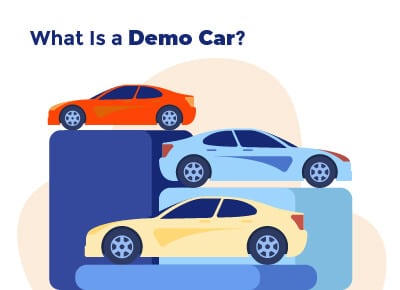

I am a serial entrepreneur and a consumer advocate. When I’m not helping car buyers, I love working on ventures that have a positive impact.
I run a cause marketing agency and serve on the board of Vayu Global Health where we are disrupting the medical industry and preventing the needless deaths of mothers and babies during childbirth.
When shopping for a vehicle, you may come across a "demo" car for an appealing discount. Part of demo car sales strategies is to present customers with the opportunity to acquire a nearly new car at a significantly reduced price.
Typically, demo cars are the newest models, yet are sold for a price below the MSRP. They can be a good way to save, but is there a catch?
Find out exactly what a demo car is and if you should buy one in this guide.
Which option is right for you? Buying a new car or a used car.
Table of Contents
Are Demo Cars Worth It Video
What Is a Demo Car?
Demo cars are what dealerships use for test drives, or sometimes the dealership's management uses for commuting. They're not always registered, so they may still be considered new despite the mileage. Typically, demo cars are sold with less than 3,000 miles on them.
Demo cars are not the same as "program" cars. Manufacturer representatives drive program cars and then pass them onto dealers to sell with up to 10,000 miles on them.
Demo Car Pros
Buying a demo car can be a good opportunity for these reasons:
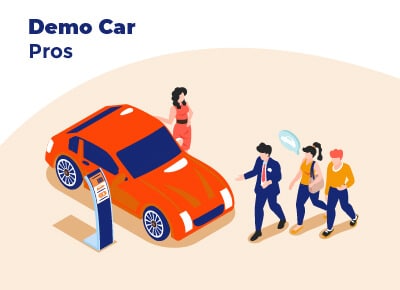 New Car Incentives. Since they are labeled as "new cars" they qualify for any rebates or incentives from the dealer or manufacturer.
New Car Incentives. Since they are labeled as "new cars" they qualify for any rebates or incentives from the dealer or manufacturer.- Fewer Fees. You don't have to pay for freight and PDI inspection. These are added fees you'll have to pay for a new car that you get to skip with demo cars. This can save you another $1,500+.
- Lower Price. It is often priced very well to incentivize a purchase, meaning you can get a nearly new car for a much lower price.
- Add-Ons. Demo cars often come with add-ons like premium features, leather seats, sunroofs, tinted windows, etc.
- Typically Treated Well. Unlike rental cars, demo cars are driven by dealer staff or customers, and they must keep the vehicle in excellent shape.
Demo Car Cons
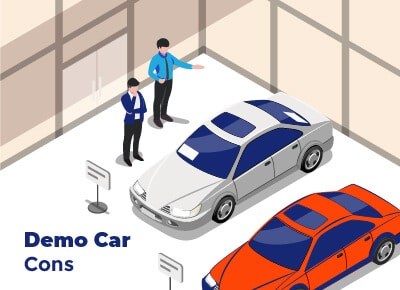 Warranty. The warranty coverage is reduced by the miles already used and based on the first service date.
Warranty. The warranty coverage is reduced by the miles already used and based on the first service date.- Customization. No ability to customize your own options, paint color, etc.
- Car History. Hard to be certain of the car's history, like who drove it and how it was driven.
- Mileage. The car already has miles on it and has been driven by others.
What to Look for in a Demo Car
 Price: When shopping for demo cars, carefully compare the pricing. They're often discounted compared to other new models, but this isn't always the case.
Price: When shopping for demo cars, carefully compare the pricing. They're often discounted compared to other new models, but this isn't always the case.- Warranty: You'll want to know how much of the warranty is left before purchasing the vehicle.
- Condition: While wear and tear are unlikely, you should still carefully examine the demo car's interior and exterior.
- Car Report: Obtain a car report on the demo vehicle to ensure its history is free of accidents or collisions.
- Incentives: Check for the incentives available on brand-new models and ask if they apply to the demo car as well.
What Should I Pay for a Demo Car?
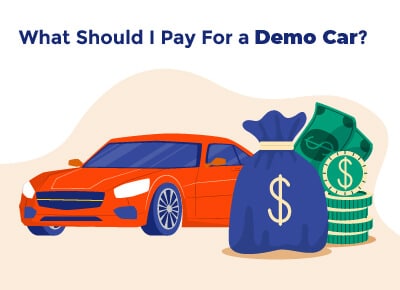 Part of the appeal of demo cars is the opportunity for a discount, so you want to ensure you are getting a good deal. Figure out the price for comparable new models. Ideally, aim for a discount of 25 to 40 cents per mile driven. For example, if the demo car has 3,000 miles, the discount should be between $750 and $1,200.
Part of the appeal of demo cars is the opportunity for a discount, so you want to ensure you are getting a good deal. Figure out the price for comparable new models. Ideally, aim for a discount of 25 to 40 cents per mile driven. For example, if the demo car has 3,000 miles, the discount should be between $750 and $1,200.
Whether or not a demo car is a good deal depends, so you should take into consideration the total cost as well as any discounts or incentives. As with any car purchase, you can (and should) negotiate as well. Dealers are eager to move demo cars off the lot and maybe even more willing to negotiate. Since demos are already discounted, the negotiating may come more in the form of trade-in value or extras rather than the car price.
Can You Save Money With Demo Cars?
Buying a demo car can help you save money on a modern vehicle. However, a demo car does not automatically mean that you’ll save money. Instead of assuming that the price is fair, research more about the vehicle’s condition, history, and market value. Then, you can determine if the price is a good deal that saves you money.
If the price is right, buying a demo car can be a great budget-friendly option. You should also still negotiate the price of the demo car, the same way you would with any other vehicle purchase. This can further improve cost savings and ensure you get the best deal with a demo car purchase.
Where Can You Buy Demo Cars?
The best place to look for a demo car for sale is a dealership. Since dealerships use them for test drives or commutes, they are the ones who often sell them. Call your local dealerships and inquire about demo car inventory available for sale. The great thing about buying a demo car from a dealership is that you’ll know its exact history.
Aside from dealerships, you may also find demo cars for sale at auctions, including in-person and online auctions. Look for auctions nearby and consider attending one if you’re interested in purchasing a demo car.
Pre-Purchase Inspection
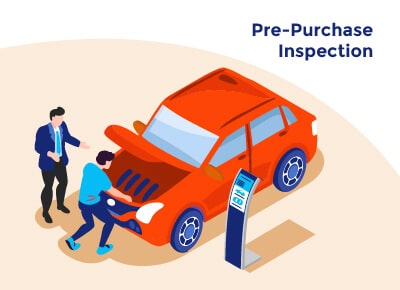 A pre-purchase inspection is one you get done before buying the car. You can hire an independent mechanic to assess the car and let you know of any concerns or upcoming repairs. While PPIs will cost a few hundred dollars, they could save you thousands of dollars and hours of stress on a lemon car.
A pre-purchase inspection is one you get done before buying the car. You can hire an independent mechanic to assess the car and let you know of any concerns or upcoming repairs. While PPIs will cost a few hundred dollars, they could save you thousands of dollars and hours of stress on a lemon car.
Only consider a pre-purchase inspection if you are very serious about buying the car, as getting one for any vehicle you're considering would certainly add up. A PPI will ensure you are getting the quality and condition that is being advertised and prevents any surprise repair issues after purchase.
Should I Buy a Demo Car?
Buying a demo car can be to your benefit if it has the features and options you're looking for at an appealing discount. However, if you have to compromise heavily or the discount is negligible, you may be better off buying the brand-new vehicle of your choice.
Buying a demo car could save you a good chunk of money on a nearly new car, but keep in mind that the demo car has been driven. Always be sure to carefully examine the vehicle, get the history report, and hire a mechanic for a pre-purchase inspection.
Best Car Deals by Category
Frequently Asked Questions
What is a demo car?
Demo cars are "new cars" that were driven as test vehicles or by dealership staff. They're typically sold within a few months of driving and will have less than 3,000 miles on them.
What's the difference between a demo car and a program car?
Dealerships use demo cars for test driving or management commutes. On the other hand, program cars are used by manufacturer employees for a short time and then purchased by the dealership.
What's the difference between a demo car and a CPO car?
Demo cars are not the same as certified pre-owned vehicles. CPOs have certain benefits, like extended warranties or complimentary maintenance, that demo cars won't have. However, demo cars may be eligible for the same incentives as brand new models and often have a good chunk of their original warranty left.
How do you find a demo car?
Demo cars are sold directly from the dealer and are most often on their lot. If you are specifically looking for demo cars, a good starting point would be to inquire about any ongoing demo car sales at your local dealership.
Is buying a demo car bad?
As with any vehicle purchase, you must carefully consider a demo car. While demo cars have some advantages that make them appealing, they also carry some risk and are not brand new. To determine if you should buy a demo car, carefully examine the discount you'd get and the vehicle's condition.
What are the advantages of buying a demo car?
- Discount on price compared to brand-new vehicles.
- Room to negotiate because dealers want to move them quickly.
- Often have appealing add-ons.
- Fewer miles than used cars.
- Readily available vehicle history.
- Well-maintained.
- Rebates and promotions.
What are the disadvantages of buying a demo car?
- Potential wear and tear.
- Only part of the warranty remaining.
- Discount may not be worth it in some cases.
- It could have numerous drivers.
Posted in Car Buying Tips |




